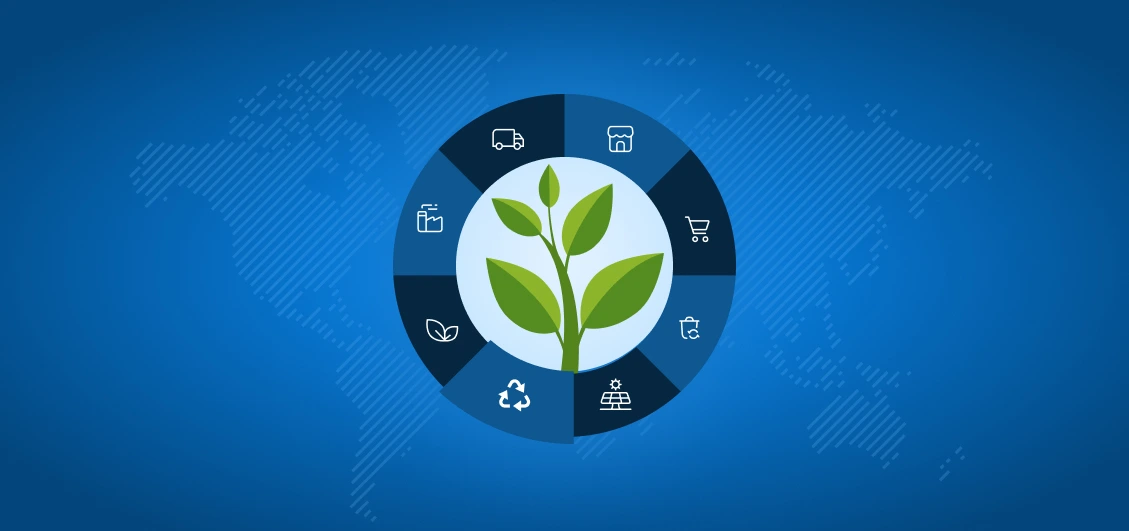
In today’s fast-paced world, the impact of traceability on EU sustainability goals is being taken seriously. Traceability provides a clear visual of the supply chain, from sourcing to manufacturing, distribution, and delivery. The businesses can spot inefficiencies, control waste management, open more potential for circularity and meet ethical and environmental standards significantly set by the EU.
Beyond operational benefits, traceability builds confidence with consumers, who increasingly demand transparency and accountability. The customers approve the products that cover the transparency criteria.
Having a clear understanding of the product's overall details, businesses use analytics to make effective decisions on different matters, from the track record of the product’s market value.
The EU’s sustainability vision, set out in the European Green Deal, is about creating a climate-neutral, fair, and prosperous Europe by 2050. That means cutting emissions to net zero, protecting natural resources, and building an economy that works for both people and the planet.
DigiProd Pass plays a practical role in making this vision a reality. Our Digital Product Passport (DPP) platform is a big deal for helping the EU hit its goal of cutting greenhouse gas emissions by at least 55% by 2030. It gives businesses the power to really dig into and track their carbon footprint across the whole supply chain. By making it easy to trace materials, check ethical sourcing, and design things for reuse or recycling, our platform truly boosts a circular economy. Plus, with features that meet the Ecodesign for Sustainable Products Regulation, we make sure products are super transparent, from where they start to where they end up. This isn't just about helping companies stay compliant; it also builds a lot more customer trust.
By turning complex data into clear, actionable insights, DigiProd Pass gives organisations the tools to cut waste, improve efficiency, and demonstrate environmental and social responsibility, aligning business success with Europe’s most important sustainability goals.
Businesses are now required to comply with stricter sustainability reporting to subscribe to the European Green Deal and the Circular Economy Action Plan. Digital Product Passport offers a verifiable, secure record of data of the product's origin, certifications and environmental performance, which eases the compliance for the companies.
DPPs also help protect brands from the risks of greenwashing, ensuring that sustainability claims are backed by evidence by offering transparent, trustworthy data.
Modern consumers are aware of their part to play in making sustainability work. The customers now ask for transparency regarding the product's manufacturing details. They approve in terms of making informed decisions regarding their consumption. As a result, there is no option instead of making traceability work effectively to satisfy ethically minded buyers. Traceability turns sustainability from a regulatory requirement into a market differentiator.
Digital Product Passports act as secure repositories for product information, accessible by all bodies, including manufacturers, distributors, regulators, and consumers. They promote accountability, support recycling, repair, and refurbishment, and reinforce the circular economy principles set by the EU. DPPs transform transparency into actionable insights and strategic advantage.
To make traceability work, Digital Product Passports (DPPs) are making a strong impact, achieving sustainability targets. They show clear and trustworthy information about a product every step of the way, helping businesses meet regulations, become more sustainable, and build trust with everyone involved. In today's world, where data is king, DPPs aren't just a useful tool; they're a powerful way to stand out from the competition, making sustainability goals easy to reach.



.svg)
.svg)